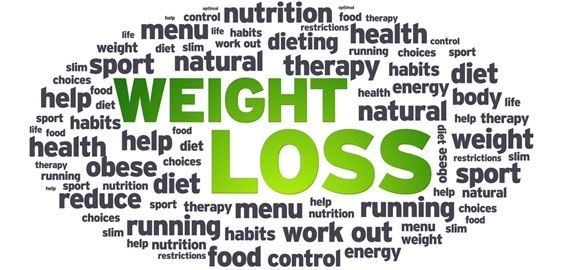A Weigh Out to Overeating
Given that diets are all about deprivation and strict rules, is it any wonder that the majority of diets fail long term, and that evidence suggests that you are more likely to gain further weight when you come off the “regime”?
“I am doing really well with my regime,” said Fran, a long life dieter, “And then, ‘it’ happens. I am upset, or angry or something that I cannot put my finger on and I reach for the food. And of course bang goes my diet. AGAIN. And then I feel so ashamed. AGAIN.” This ever-frustrating experience with dieting and overeating, dieting and overeating, is a common occurrence for many individuals that we at Weigh Out Ltd. encounter in our work everyday. Emotions drive our eating habits, and no amount of eating or dieting, can satisfy us on an emotional level. That emotional side of eating is never addressed with diets. It is a bit like covering up the cracks on the outside of your house, only to find that when there is a heavy downpour, the rain has seeped in again and is causing the building to collapse.
In his book “The 20 minute break”, Psychotherapist and teacher Dr. Ernest Rossi, states that there are four types of overeaters - stress overeaters, fatigue overeaters, addictive overeaters and escapist overeaters. It is important to remember that these are all driven by anxiety so overeating becomes a coping mechanism Overeating becomes an automatic habit and usually after the initial ‘hit’, when the food or drink goes into the mouth, it doesn’t even taste particularly good. The moment you feel relaxed with food, you can start to eat consciously and enjoy each mouthful and become aware of subtle tastes/textures/flavours. Also when you are conscious of what you are consuming, it is possible for you to hear the body signal that tells you when to stop eating, enabling you to let go of your desire to overeat or to diet. Some people find this concept a little scary, worrying that they will be out of control. EFT* can help with these concerns. Food is everywhere. Unlike any other addiction we need to eat. Having a healthy relationship to food and to our bodies is vital.
“Since learning to use EFT* (Emotional Freedom Technique, a dynamic form of acupuncture, using the fingertips to tap on the meridian points) something has shifted”, said Fran. “I remember the first time that I was upset after learning EFT with Weigh Out Ltd., I was walking towards the fridge, and I stopped myself and asked the two key questions, “How do you feel?” and “What do you need?” I tapped and the answer was staring me in the face. I was exhausted, and after tapping on my exhaustion and the reasons why I was exhausted, the craving just lifted. It has been great, I have lost half a stone, and I am getting to really know myself at the same time!”
So what practical steps could be taken to have awareness around the four types of overeaters? Like Fran in the example above, she managed to catch herself before starting the eating session. This is a major breakthrough. She could then look at her life, and ask herself some questions, “Could I be sharing the load or do I keep saying I can manage? Do I need more support? Do I need to take some time out?” When speaking to her after this event she was really clear that she wasn’t hungry – she was tired. She could then put steps in place to address her tiredness.
The world we live in does not create our stress. Our attitude to the world we live in creates our stress. So “stress overeating” is when we are not mindful of what is happening in our lives. Maybe we are not taking enough breaks, saying “no” when we need to, or just taking on too much. So to compensate we will snack continually in order to anaesthetise ourselves from the anxieties we are going through. EFT* will reach the underlying causes behind the overeating.
When we are not happy with our lives and we are not feeling as fulfilled as we would like to be, we may slip in to “escapist overeating”, which happens most commonly when we are alone. Maybe our relationships are not as we would like them to be and some new goals to be set? Maybe there are some unpleasant decisions that we need to make and are feeling quite scared with the outcome? EFT is a flexible tool and you can use it to address all these needs effectively and often very quickly.
And finally “addictive overeating”, where for example, coffee, sugar, chocolate, alcohol, cigarettes, are regularly consumed. Sugary foods may be consumed to highten mood or to fight off depression, anything to avoid those difficult feelings that keep surfacing. Again self-awareness is the key to recognising and then changing our behaviour.
The important thing to realise is that there is a way out. Giving yourself a hard time for what you have been doing up till now, will probably make you feel worse and increase your desire for food! Instead be kind to yourself and just notice your feelings. Then ask yourself “How would I like to feel? And how could I do things differently?” The choice is up to you, because it is your life and even if it doesn’t seem like it, you are the one with the power. In reality it doesn’t really matter how big or small your steps are as long as you are going in the direction you want to go, whatever you do remember to enjoy your journey.
If you are interested in Weigh Out Ltd – weight loss without dieting please take a look at our website www.weighout.co.uk and email us at [email protected]
-
4 Simple Tricks to Lose More Fat Now
If you can learn how to lose belly fat then you can learn how to
-
Acupuncture Weight Loss: More Than Just Needles
Sometimes it can be difficult for people of another culture to unders
-
Terrific Chest And Back Workouts From P90X
The P90X chest and back workout routines and videos can have an enormo
-
Emotional Eating Recovery Guide - Three Things to do Instead of Eating M&Ms
Emotional eating is eating that is a response to our feelings and n
-
You Can Be Losing Weight Through A Healthy Eating Program
Like many people today there are many wh
-
Quick Guide To Diet Pills Facts
It seems like there are a variety of diet pills on the market today, b
- DON'T MISS
- Fat Burning Secrets For Cardio Workouts
- The #1 Thing To Do If You Really Want To Eat Clean
- Changing The WAY You Walk Could Cut Your Flab By 15%!
- Weight Loss Secrets You Have to Know About
- Lose fat in Your Legs – How To Guide
- Best Weight Loss Tips - Weight Loss Secrets
- 12 Weight Loss Tips To Promote Your Health
- 19 Reasons People Fail To Achieve Their Fitness Goals
- Is My Diet Coke Making Me FAT?
- Helpful Weight Loss Plans - Important Things You Need to Know




